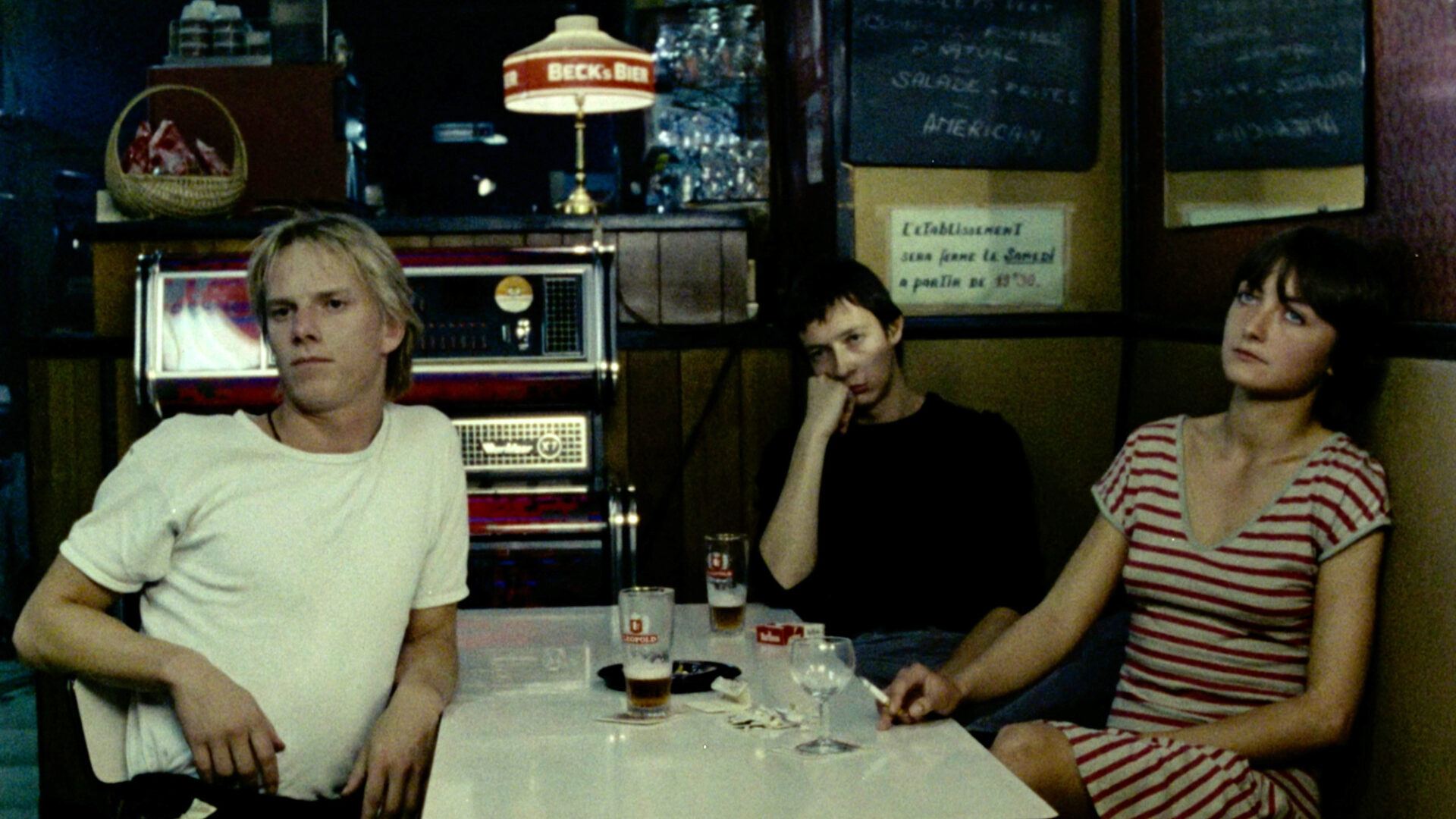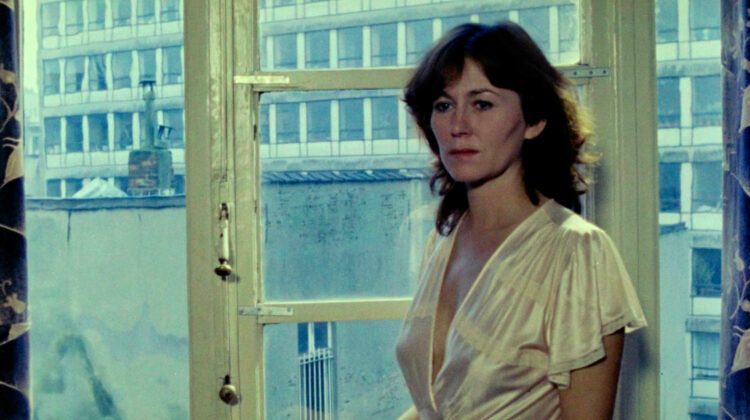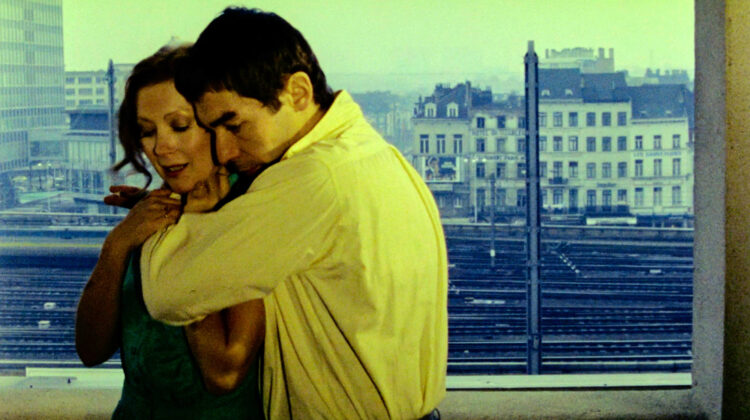- Toute une nuit
- aka All Night Long
-
Belgium/
France 1982 - Chantal Akerman
- 90 DCP
- NR
Screening Dates
- November 29, 2024 6:30
- December 1, 2024 8:50
- December 9, 2024 6:30
“One of her very best films … The yearning for romance and for the romance of the ordinary is a central ingredient of [Akerman’s] work … Emblematic in this regard is Toute une nuit, an insomniac’s movie about insomniacs.”
Jonathan Rosenbaum, Chicago Reader
The stillness of an Edward Hopper painting and the mounting progression of a structural film are married in Chantal Akerman’s Toute une nuit, a secret masterwork in which people meet, part, and reunite over a single hushed evening. In films like News from Home and Je tu il elle, Akerman’s status as a peerless poet of first-person loneliness is readily apparent. With Toute une nuit, that singular quality is reoriented across a cast of dozens. Released the same year that Akerman followed dancer and choreographer Pina Bausch on tour, the film presents, in careful sequence, one pas de deux after another, as if to test the limits of experience—the “all” of the title within its single-night framework. The evening provides cover for figures that, given the film’s near-total silence, we might infer have been together for seconds, hours, years… Toute une nuit’s total concentration on the ephemeral casts an unbroken spell of romance—its mysteries and maladies.
In French and English with English subtitles
“Despite the anonymity of her dramatis personae, Akerman brilliantly conjures a sense of narrative tension throughout every chapter … [She] lets us come to our own conclusions, allowing to stand the great mystery of what draws one human being to another.”
Melissa Anderson, 4Columns
“Toute une nuit is the opposite of Jeanne Dielman in that it is a film of mostly ‘significant moments’ … [The film’s] stylized concreteness mocks both the idealism of thinking love to be unrepresentable and the need for explanation.”
Ivone Margulies, Nothing Happens: Chantal Akerman’s Hyperrealist Everyday



